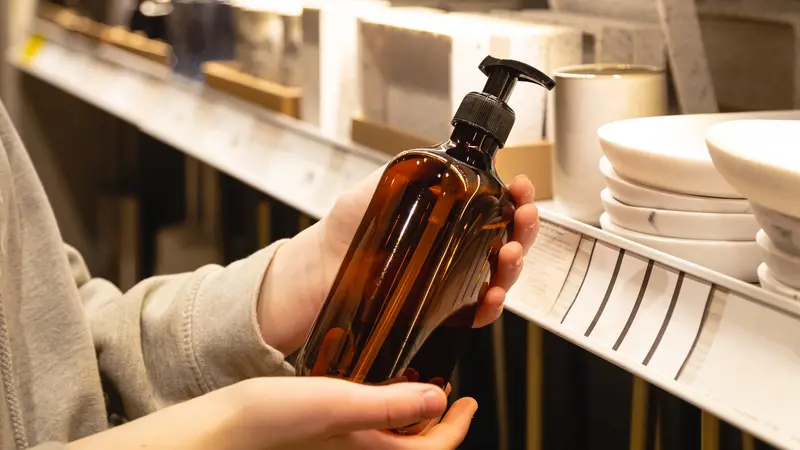The beauty and personal care industry has grown rapidly over the past decade, driven by increasing consumer demand for high-quality, customized products. Among these, haircare—particularly shampoos—has become one of the most dynamic segments. For entrepreneurs, salons, and even established cosmetic brands, partnering with private label shampoo manufacturers is an excellent way to create unique products without the complexities of in-house production.
Reputable companies such as private label shampoo manufacturers provide tailored solutions, offering everything from formulation and packaging to compliance and distribution. This allows brands to focus on marketing and customer relationships while leaving the production to experienced professionals.
What Is Private Label Shampoo Manufacturing?
Private labeling is the process where a third-party manufacturer produces goods that are then branded and sold by another company. In the case of shampoos, this means the manufacturer creates the formula, ensures quality control, and packages the product, while the brand adds its name and identity.
This model offers several benefits:
- Lower Costs: Eliminates the need for expensive factories and R&D departments.
- Faster Market Entry: Products can be launched quickly since formulations are often pre-developed.
- Customization Options: Brands can tweak ingredients, fragrances, and packaging to suit their audience.
- Scalability: Production can expand as demand grows.
Why Work With Private Label Shampoo Manufacturers?
- Expertise in Formulation
Manufacturers have years of experience creating formulas suitable for different hair types and market trends. This ensures a brand can offer effective products backed by scientific research. - Regulatory Compliance
Navigating cosmetic regulations can be challenging. Professional manufacturers understand global compliance standards, ensuring that shampoos meet safety and legal requirements in different markets. - Innovative Ingredients
Leading manufacturers stay updated with the latest trends—such as organic botanicals, vegan formulations, and sulfate-free options. This helps brands remain competitive. - Consistent Quality
Partnering with a reliable manufacturer ensures every batch of shampoo maintains the same quality, protecting the brand’s reputation. - Cost Efficiency
Producing shampoos independently requires significant investment. Outsourcing production reduces overhead and risk.
Key Qualities to Look for in a Manufacturer
Choosing the right partner is essential for long-term success. When evaluating private label shampoo manufacturers, consider the following:
- Experience: Established companies with years of expertise in cosmetic production.
- Certifications: ISO, GMP, and other quality assurance certifications.
- Customization: Ability to create unique formulations tailored to brand identity.
- Global Reach: Manufacturers with international clients understand diverse market needs.
- Packaging Options: A wide variety of eco-friendly, luxury, or travel-size packaging.
- Innovation: Use of advanced R&D to stay ahead of beauty industry trends.
The Importance of Innovation in Haircare
Consumer expectations in haircare are evolving rapidly. Today’s buyers are looking for products that are:
- Eco-Friendly: Sustainable packaging and biodegradable formulas.
- Natural and Organic: Free from harsh chemicals, parabens, and sulfates.
- Personalized: Solutions tailored to specific hair types or concerns, like dandruff, thinning hair, or color protection.
- Multifunctional: Products that combine shampoo with conditioning or scalp treatment benefits.
Working with an innovative manufacturer allows brands to tap into these trends and deliver products that resonate with modern consumers.
Steps to Partnering With a Private Label Shampoo Manufacturer
- Define Your Brand Identity
Decide whether you want to focus on luxury, organic, professional salon products, or affordable mass-market solutions. - Research Manufacturers
Compare different manufacturers’ expertise, product ranges, and past clients. - Request Samples
Always test samples before committing. Check fragrance, texture, effectiveness, and packaging. - Discuss Customization
Work with the manufacturer to adjust formulas, add signature scents, or include trending ingredients. - Check Certifications
Ensure the manufacturer complies with cosmetic regulations in your target markets. - Negotiate Terms
Review pricing, minimum order quantities, timelines, and shipping arrangements. - Launch and Scale
Once satisfied, move forward with your first order and adjust production as demand grows.
Global Opportunities in the Private Label Shampoo Market
The global shampoo market continues to expand, with increasing interest in custom and niche products. Private labeling opens doors for:
- Small Businesses: Startups can enter the market without major investments.
- Salons and Spas: Custom shampoos allow beauty professionals to extend their brand identity.
- Influencers and Celebrities: Personalized haircare lines build stronger personal brands.
- International Expansion: Multilingual manufacturers like Zoccali help brands cater to global audiences.
Quality Assurance: Why It Matters
In the beauty industry, quality defines trust. Customers quickly abandon products that fail to meet expectations. Reliable manufacturers use strict quality control methods such as:
- Ingredient testing for safety and purity.
- Microbiological checks to prevent contamination.
- Stability testing to ensure shelf life.
- Packaging inspections for durability and compliance.
This guarantees every product delivered to customers upholds the brand’s reputation.
Future Trends in Private Label Haircare
The next wave of innovation in shampoo manufacturing will focus on:
- AI-driven Personalization: Formulas based on scalp analysis and DNA testing.
- Sustainability: Refillable bottles, solid shampoo bars, and zero-waste packaging.
- Health-Focused Products: Shampoos infused with vitamins, probiotics, and natural oils.
- Smart Packaging: QR codes linking to tutorials, ingredient information, and recycling details.
Brands that partner with forward-thinking manufacturers will be best positioned to thrive.
Final Thoughts
Launching a shampoo line no longer requires massive investments or years of R&D. By working with private label shampoo manufacturers, brands can enter the market quickly, deliver high-quality products, and scale efficiently. If you more details to visit WORLD US MAGAZINE .


